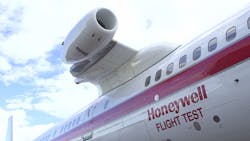What comes to your mind when you think of engineers? In my father’s days, there was a generalization that all engineers carried a slide rule. Early on in my career, calculators were popular items to have on hand.
Whatever comes to your mind first, probably demonstrates a common misconception about engineers.
The fact is that engineers are dynamic individuals who are also strong leaders, communicators and business people.
Not only are we required to design and develop the latest innovative technologies, we are also able to understand what our customers need and manage a product through completion for successful delivery.
Business acumen competency is increasingly important for engineers. It has become imperative for an engineer to be able to understand how a business works as it helps improve their critical thinking and decision-making skills that can then positively impact the business.
Leading a large department of engineers, I consistently tell my team that I would like for them to be intellectually curious about how the business works, how we make money and how their decisions impact the company’s ability to stay successful and competitive.
During my 30 years at Honeywell (IW 500/35), I was provided the opportunity to learn these skills through multiple job assignments throughout the organization in engineering, supply chain, marketing and product management.
These roles allowed me to improve my understanding of how our company works, and helped develop my leadership and communication skills by working with mentors, engaging with international teams, speaking to customers and suppliers, and presenting at various forums and meetings.
Problem Solvers
When we hire new engineers, we not only consider good performance in their engineering core course work but we also review their work experiences through their college years, personal interests and secondary course work in business and project management.
These additional accomplishments demonstrate an individual’s ability to take on leadership and customer interfacing roles at Honeywell. As the aerospace industry evolves and becomes more competitive, the expectations of engineers have also become more comprehensive.
Becoming a successful aerospace engineer is hard work. It takes significant effort and commitment to remain focused on technologies that require years to enter into service.
However, there is nothing more gratifying than walking through the production line and seeing products being built and shipped of which you have contributed years to the success and then seeing these products on board a customer’s aircraft performing the job that you designed it to do, and contributing to the success of the business.
I also take great pride in watching the organization that I lead transform and mature and seeing the personnel growth of individuals who contributed to our overall success.
Next time when you think of an engineer, remember that we don’t all have pocket protectors and only know how to design and build complex components.
We are a diverse group of business people who solve problems and deliver value to the end user. In addition, some of us are certified black belt Tae Kwon Do martial artists that excel not just at work but also in the ring.
And, if you or someone you know is considering a career in aerospace engineering, know that it is a diverse and rewarding job that will enrich your skills in design and business for a lifetime to come.
